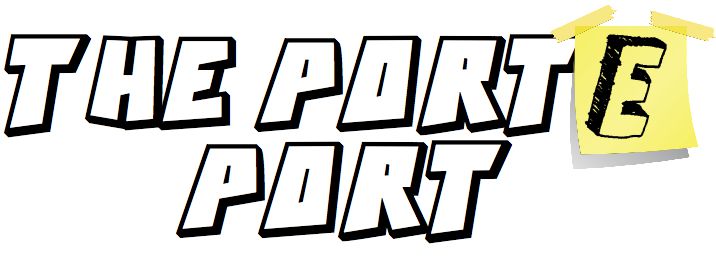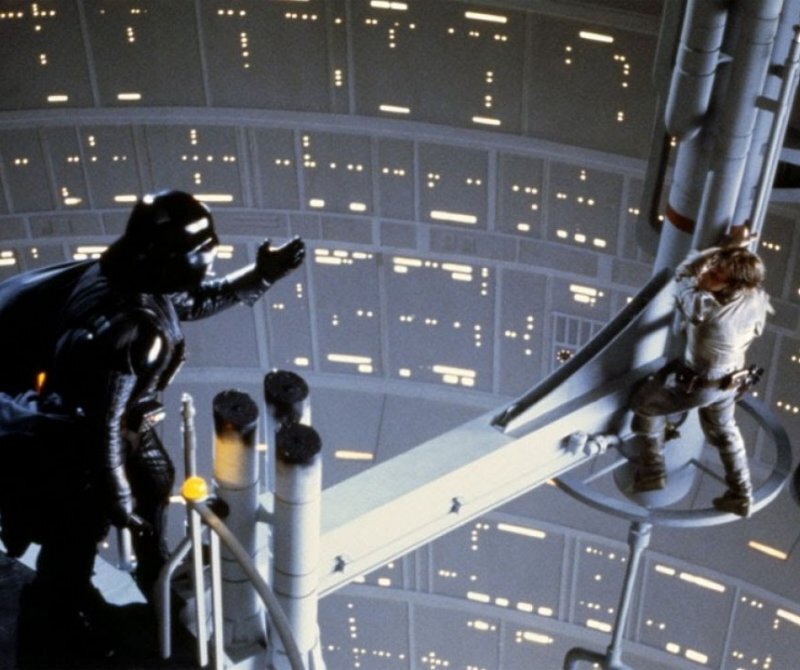Writing the Hero That Fails
X-Wings streak through space as Luke Skywalker makes his final approach to the Death Star's exhaust port.
Darth Vader is about to crush any hope when the Millennium Falcon screams onto the scene at the last moment, giving Luke a clear shot.
The young farm boy takes a deep breath, meditating on what little he knows of the Force, trusting that some power beyond his understanding will guide the proton torpedos to the reactor core.
He fires, exhaling, relying on the words of his dead mentor.
The torpedos drill into the surface.
Luke misses.
The Death Star obliterates the Rebel base, and the handful of freedom fighters that are left, run from certain annihilation.
How will Luke deal with his utter failure?
Will the other rebels look down on him?
Should Luke give in to the dark side of the Force in this more desperate situation?
Does this mean the Empire wins?
I actually wouldn't mind seeing this terrible alternate reality.
I'm guessing I'm not the only one.
After all, arguably the best Star Wars, The Empire Strikes Back, deals with the heroes failing over and over.
And we love it.
Give me your hand Luke…HEYO!
We love the story act that deals entirely with plans going wrong, people giving up, and heroes disappointing themselves and everyone around them.
Why are we such masochists for failure in a story?
Because we fall short. Life is full of disappointment and tragedy.
We fail.
In many ways, storytelling exists to escape from this. The really meaningful tales, though, don't shy away from failure.
Why?
We certainly don't need more of it in our lives, let's be honest.
Yet, we connect to characters, then watch them fail. We don’t love the mire they now have to wade in, but we are curious to see how they lift themselves out.
We need inspiration to deal with the failure in our own lives. We look to story to see how the characters we love deal with their own shortcomings. Then we look to see how we can create change too.
Let's get geeky because that's what these articles are all about. Failure, geekiness, storytelling, I've talked about it before, and here we go again.
This time we look at a different medium than I usually examine. Let's dive into The Legend of Zelda series.
Oh God, don’t dive that far!
On the surface, the Zelda games have all those classic, maybe even some cliché, fantasy tropes:
The destined hero is chosen for an adventure
All odds are against him
The princess needs saving
Monsters need slaying
Grass needs cutting
Link sets out from his simple existence and runs through a traditional Hero's Journey.
Look just beneath the surface, though, and the themes start to become overwhelming. This story about a child on some fun adventure based on the creator's childhood exploring caves deals with underlying currents of death, impending doom, the nature of what it means to be alive, and failure.
Yes, failure most of all.
One of the most iconic installments to the series is Ocarina of Time.
At the start, the child hero sets out to prevent the evil Ganondorf from entering the mystical sacred realm to get his hands on the extraordinarily powerful Triforce.
Pretty typical fantasy if you ask me.
The entire first portion of the game sees Link fighting through dungeons to gather the gems that will open his path to the super kick-ass Master Sword.
Yup, uh-huh, sounds like more tropes to me.
Link, of course, pulls off this task just in time as princess Zelda is hunted by Ganondorf (probably because she made fun of his name at a royal party or something.)
With the path open, Link takes the Master Sword, entering the sacred realm and accomplishes his destiny.
And lets Ganondorf in giving him access to exactly what he wants.
Link oversleeps by seven years and walks out to a world that is totally alien to him. The kingdom he fought so hard to protect is now in utter ruin.
Link failed.
I mean, he failed big time. He was the one who let Ganondorf into the sacred realm. Link caused the very thing he was fighting to prevent.
This isn't the only game that deals with failure in the series. Link's failure, specifically.
Majora's Mask is a deep dark hole of themes and theories, but through all of that, impending doom looms literally above everything.
“Uh, hi there, I’m the impending doom everyone is talking about.”
Link continually goes back in time to achieve his goals. There are too many people to save in the three days Link has.
If you think of the last cycle before Link kills the final boss as "reality," he fails to help so many people that he knows needs him.
The hero has limits.
Wind Waker's entire world-building is plopped on top of a ruined Hyrule the destined hero failed to even show up for.
The most recent addition, Breath of the Wild, takes place a hundred years after Link already failed. Hyrule is in a sort of apocalyptic state, and those old tales are pretty legendary now.
The point is, Link, the hero of heroes, fails time and time again.
You need a hero that fails. Superman doesn't actually exist. (And yeah, I've totally bitched about Superman before).
Your audience wants to immerse themselves in a world that feels real. The reality is, people fail. So, your characters need to fail too.
So much storytelling comes out of that failure. With mistakes and tragedy and doomed plans all blending together.
What will your protagonist do?
That's the question that will keep your reader turning pages. It's the complication part of a story that keeps begging more questions.
Heroes become more desperate, values get thrown into question, and the story becomes more than just “will they win” and adds on “will they become monsters in the process?”
The complicated journey makes the story.
Sure, your hero might have destiny swirling around them like living centers of a hurricane, but what happens when the winds of their destiny destroy the things they love?
What is your hero made of?
What price will be paid for victory?
In Ocarina of Time, Link keeps pressing on. Eventually, he faces Ganondorf, but with the piece of the Triforce he has stolen, the evil enemy can only be sealed away and not truly killed. He kinda becomes a problem for Hyrule over and over.
There's victory for now, but for how long?
And Link has personal consequences too.
The theme of time ties into the irony of Link being in control of it, yet losing it at the same time. The hero loses his childhood altogether, being forced to grow up to meet his destiny and save the world he lives in.
No spell, or song, or last save file can ever give that back to him. The entire next game deals with the themes of loss over and over again.
(For Zelda fans, Kafei may even represent Link's feelings of being an adult now trapped in a boy's body. Can he be accept who he is?)
Later in the series, Twilight Princess introduces the Hero's Shade that is confirmed to be the spirit of the hero from Ocarina of Time. Because of his time-altering actions, he is never remembered as a hero at all. Not only did he lose his childhood saving Hyrule, but the glory of it was also something saved for legends after his time.
Ooof, Link did not glow up
The question is, deep down, is the hero willing to be a hero if he has to give up so much? His childhood? Even the fame? The very memory of it?
Adventures have costs to them.
Failures lead to complications.
A life full of war and violence leaves the Hero's Shade unsatisfied in peace. There is no place for the destined hero when destiny is no longer calling.
The great tragedy is that Link, the Hero of Time, has to face the reality that he can never do that one failing moment over again.
What failures will you introduce to your characters?
Maybe there's that middle section of your story where something is missing. You can't pin it. What’s missing might not be what your protagonist will do, but rather, what your protagonist will fail at.
The story flows from there. How will your character come back (or not) from their own mistakes?
The choices made after failure are the most interesting story strands of all.
When a protagonist can suck in your audience into their own state of mind, finding their way to redemption while your readers can't stop turning pages, that's when you know you have something special.
Maybe even something legendary.
Want to write like a legendary geeky writer? Sign up for my newsletter below and receive extra tips analyzing the movies, games, shows, and books we love.











